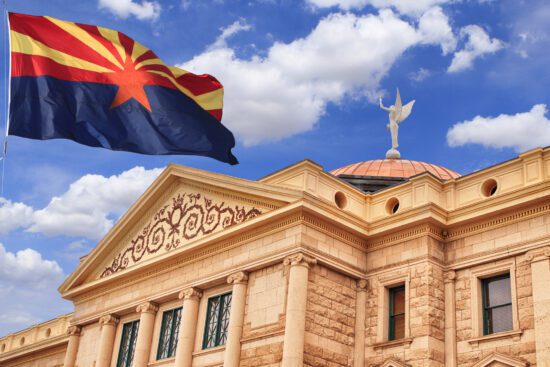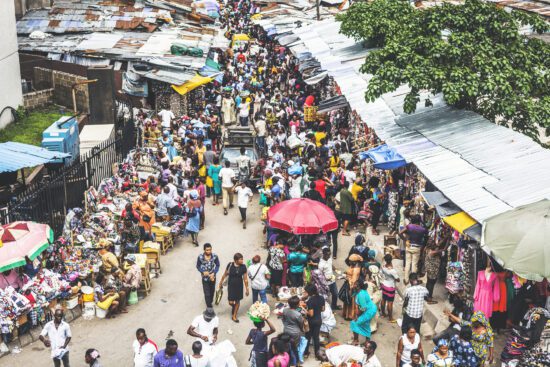Over the past week, internal conflicts over Brexit has pushed the British government to the brink of a constitutional crisis. Here is what you should know to make sense of the issue, and to understand why it matters for Christians across the globe.
What is Brexit?
Brexit is merely the shorthand abbreviation for “British exit,” which refers to the UK leaving the European Union (EU).
British, Irish, and Commonwealth citizens voted in June 2016 on the question “Should the United Kingdom remain a member of the European Union or leave the European Union?” The referendum resulted in 51.9% of votes being in favor of leaving the EU. Although the referendum wasn’t legally binding, the government at the time agreed to abide by the desire of the people. Two subsequent elections have also given the government a mandate to proceed with the disentanglement from the EU.
What is the European Union?
After two World Wars devastated the continent, Europe realized that increasing ties between nations through trade might increase stability and lead to peace.
In 1958, this led to the creation of the European Economic Community (EEC), an arrangement that increased economic cooperation between six countries: Belgium, Germany, France, Italy, Luxembourg, and the Netherlands.
Over the next few decades, more countries joined (there are now 28 member state) and it morphed into a federalist-style economic-political union. The UK joined in 1973, and in 1993, the name was changed to the European Union.
The EU institutions are: the European Council, the Council of the European Union, the European Parliament, the European Commission, the Court of Justice of the European Union, the European Central Bank, and the European Court of Auditors.
Why is there a push for the UK to leave?
One of the main principles of EU membership is “free movement“, which means any citizens living in an EU country can live and work in another member nation without needing a visa (it’s similar to how in the United States you don’t need a work visa to move from California to Texas or live in Missouri and work in Kansas). This prevents a country from having much say into who can enter, and some people in the UK prefer to have more control over their borders.
The EU also imposes numerous restrictions on businesses, requires full regulatory compliance, and acceptance of the supremacy of EU law. Critics of the EU also say that the UK could get many of the same benefits of trade without having to pay billions of pounds (the UK currency) to be a member state. (Denmark and the UK are two member states that have opted out of using the euro, the official currency of the eurozone, which consists of 19 of the 28 member states.)
What is “Soft,” “Hard,” and “No-Deal” Brexit”?
This exit from the EU can take many forms, from “soft” to “hard.” When people refer to Soft Brexit they are referring to a situation in which the UK stays either within the EU’s Single Market by becoming a member of the European Economic Area (like Norway), or in the EU Customs Union, or both. When people refer to Hard Brexit they are referring to a situation where the UK would leave not only the EU but also the EU’s Single Market and the EU Customs Union.
Under Soft Brexit the economic impact of leaving the EU would likely be minimal. However, if it remained in the Single Market, the UK would have to maintain free movement of EU citizens, would have to contribute to the EU budget, and would remain subject to judgments of the European Court of Justice and it. Under Hard Brexit the UK would not have to sign up to free movement of EU nationals, would not be subject to the European Court of Justice, and would likely not have to contribute to the EU budget. However, the economic impact of leaving the EU would likely be substantial since the UK would have to negotiate new trade agreements with the EU and many other countries.
No-Deal is the most extreme of the Hard Brexit options, and is predicted to have a significant impact on the UK economy.
What is the current crisis about?
Britain's Prime Minister Boris Johnson is pushing for the no-deal Brexit to take effect on October 19. But within his own Conservative Party (known as Tories) 21 members of parliament (MPs) in the House of Commons have joined with other parties in voting for an extension to UK's membership in the EU—essentially a vote against a no-deal Brexit. (The MPs who voted against Johnson have been kicked out of the Conservative Party.) That bill is now pending a vote in the other chamber of the UK parliament, the House of Lords, where it is expected to pass.
In response to the bill, Johnson is pushing for a general election—known as a “snap election”—in the hopes of replacing the members of his own party with ones that will support his Brexit strategy. Under the British system, a snap election can be approved by a two-thirds supermajority of MPs in the House of Commons.
If the Conservative Party wins 35 percent of the national vote in the snap election, Johnson would remain prime minister and his party would have a mandate for no-deal Brexit. If the Conservative Party was not able to retain control after the snap election, Johnson would be replaced and the future of Brexit would once again be unclear.
So far, MPs who oppose Johnson have not yet agreed to hold a new election. But Johnson is attempting to “prorogue Parliament” (i.e., forcing a five-week hiatus) which could begin as early as Monday. This measure, which is being challenged in the courts, would push a resolution of the issue close to the October 19 deadline. MPs will vote on the issue of a snap election on Monday.
What are the potential ramifications?
Opponents of a no-deal Brexit claim it could lead to a self-imposed humanitarian crisis on citizens in the UK. For example, because almost one-third of Britain’s food comes from the EU, the change could result in higher food prices and shortages. Similarly, some medications—including common painkillers and anti-depressants—will be more expensive and less available Both of these will have a harmful effect on the poor in the UK.
The Bank of England (the equivalent to the U.S. Federal Reserve) has also predicted that it would lead to an immediate economic crash that would be worse than the Great Recession of 2008 (the UK economy shrunk 6% between the first quarter of 2008 and the second quarter of 2009 and is estimated to shrink 8% after a no-deal Brexit). Unemployment may also nearly double from the current rate of 3.9% to 7.5%, while inflation could triple from 2% to 6.5%. All of these economic forces would have a devastating effect on the poor.
No-deal Brexit would also mean the border between Northern Ireland and the Republic of Ireland would immediately become an external EU border, requiring customs checks. As the Council on Foreign Relations notes, many worry that a hard border could undermine the 1998 Good Friday Agreement and even revive conflict between Catholics and Protestants in Northern Ireland.
However, supporters of no-deal Brexit claim the concern are overblown and that the economy can handle the breakup. They also believe that politicians have stalled for too long and are failing to represent the will of the people to reinstitute national sovereignty. For them, the restoration of political autonomy and liberty outweigh the possible dangers of a no-deal Brexit.









